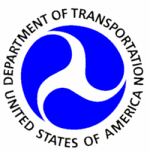Thu, Dec 16, 2010
Panel Calls On FAA To Assist In Funding NextGen Equipment On
Aircraft
The Future of Aviation Advisory Committee (FAAC) advisory panel
delivered its list of recommendations on how to address challenges
faced by the U.S. aviation industry to U.S. Transportation
Secretary Ray LaHood on Wednesday. Among the recommendations
presented by the committee are proposals that federal government
assist in funding NextGen equipage on aircraft, ensure greater
transparency for consumers in airline pricing, expand the sources
of safety data available to the Federal Aviation Administration
(FAA), and ensure that global airline alliances enhance the
viability and competitiveness of the U.S. aviation industry.

The FAAC, created in April, presented 23 specific
recommendations to Secretary LaHood on how to ensure the strength,
competitiveness and safety of aviation. The committee's 19
members represented airlines, airports, labor, manufacturers,
environment, finance, academia, consumer interests, and general
aviation stakeholders.
"This committee has provided a valuable service to all members of
the aviation community with this blueprint for the industry,"
Secretary LaHood said. "As we move forward, these
recommendations will provide valuable guidance for making the
world's greatest aviation system even greater. I thank the
members of the committee for their hard work and dedication, and I
look forward to thoroughly reviewing the recommendations."

Ray LaHood
The committee focused principally on five issue areas:
ensuring aviation safety, ensuring a world-class aviation
workforce, balancing the industry's competitiveness and viability,
securing stable funding for aviation systems, and addressing
environmental challenges and solutions.
Other specific recommendations include:
- Developing improved methods of predicting safety risks.
- Incorporating safety standards into planning for NextGen, the
FAA's overhaul of the national airspace system.
- Improving links between airports and other forms of
transportation.
- Enhancing science and technology training for the future and
current aviation workforce.
- Ensuring that aircraft operators are able to realize the
benefits of NextGen as quickly as possible.
- Reducing aviation's impact on the environment through use of
sustainable fuels and improved aircraft technology, as well as
accelerating the use of NextGen equipment to promote greater
efficiency.
The Department of Transportation will now review the
recommendations and develop a plan for their implementation.
Members of the FAAC will be invited to attend periodic briefings to
update them on the progress in implementing their
recommendations.
More News
Aero Linx: Transport Canada We are a federal institution, leading the Transport Canada portfolio and working with our partners. Transport Canada is responsible for transportation p>[...]
Gross Navigation Error (GNE) A lateral deviation from a cleared track, normally in excess of 25 Nautical Miles (NM). More stringent standards (for example, 10NM in some parts of th>[...]
From AirVenture 2017 (YouTube Edition): Flight-Proven Booster On Display At AirVenture… EAA AirVenture Oshkosh is known primarily as a celebration of experimental and amateu>[...]
Aircraft Parachute System (CAPS) Was Deployed About 293 Ft Above Ground Level, Which Was Too Low To Allow For Full Deployment Of The Parachute System Analysis: The day before the a>[...]
Also: 48th Annual Air Race Classic, Hot Air Balloon Fire, FAA v Banning 100LL, Complete Remote Pilot The news Piper PA-18 Super Cub owners have been waiting for has finally arrived>[...]
 ANN's Daily Aero-Linx (06.29.25)
ANN's Daily Aero-Linx (06.29.25) ANN's Daily Aero-Term (06.29.25): Gross Navigation Error (GNE)
ANN's Daily Aero-Term (06.29.25): Gross Navigation Error (GNE) Classic Aero-TV: Anticipating Futurespace - Blue Origin Visits Airventure 2017
Classic Aero-TV: Anticipating Futurespace - Blue Origin Visits Airventure 2017 NTSB Final Report: Cirrus SR22
NTSB Final Report: Cirrus SR22 Airborne Affordable Flyers 06.26.25: PA18 Upgrades, Delta Force, Rhinebeck
Airborne Affordable Flyers 06.26.25: PA18 Upgrades, Delta Force, Rhinebeck




